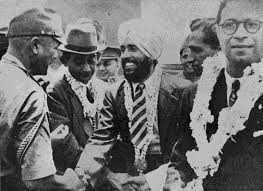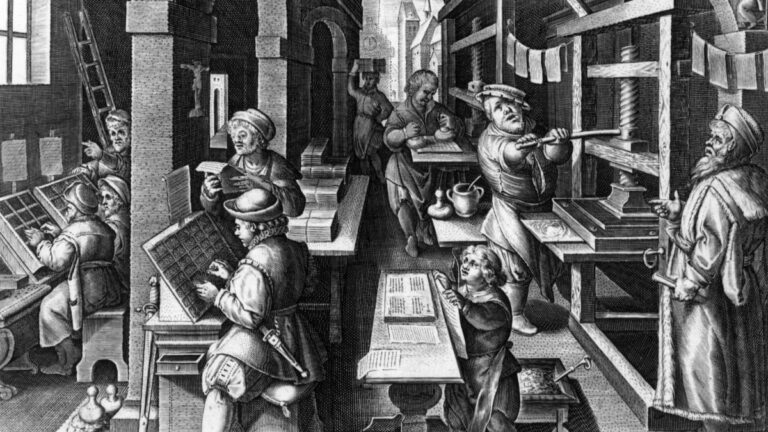
Mohan
Sardar Mohan Singh was born on January 3, 1909, in the village of Harion, Rawalpindi district, in the Punjab province of British India (now in Pakistan). Growing up in a region known for its martial traditions, Singh was deeply influenced by the spirit of resistance and patriotism. He completed his early education in Punjab before joining the British Indian Army, where he served with distinction.
Military Career in the British Indian Army
Singh’s military career began when he joined the British Indian Army. Over time, he rose through the ranks due to his dedication, discipline, and leadership skills. By the time World War II broke out, Singh had achieved the rank of Captain. His experience and understanding of military strategy and operations would later prove invaluable in the fight for India’s independence.
Meeting Major Fujiwara and Formation of the Indian National Army
The turning point in Singh’s life came during World War II. When Japanese forces advanced into Southeast Asia, many Indian soldiers in the British Indian Army were captured. Among these prisoners was Captain Mohan Singh. It was during this period that he met Major Fujiwara Iwaichi, a Japanese intelligence officer stationed in Singapore in 1942.
Major Fujiwara recognized the potential of enlisting Indian soldiers to fight against the British. He persuaded Captain Mohan Singh to form an Indian army to fight alongside the Japanese with the promise of aiding in the liberation of India from British rule. This led to the formation of the Indian National Army (INA), with Singh as its leader.
Role in the Indian National Army
Under Singh’s leadership, the INA sought to galvanize Indian soldiers and citizens towards the goal of independence. He worked tirelessly to organize, train, and inspire the members of the INA. Singh envisioned an army that would fight alongside the Japanese forces against the British in India.
However, the initial phase of the INA faced several challenges, including disagreements with Japanese authorities and logistical issues. Singh’s insistence on maintaining the INA’s autonomy and ensuring the welfare of his troops often brought him into conflict with Japanese officials. Despite these obstacles, he remained committed to the cause of Indian independence.
Subhash Chandra Bose and the INA
In 1943, Subhash Chandra Bose, a prominent Indian nationalist leader, took over the leadership of the INA. Bose’s dynamic leadership and his vision of a liberated India invigorated the movement. Singh welcomed Bose’s involvement, believing that Bose’s charismatic leadership would further strengthen the INA’s resolve.
Bose restructured the INA and launched the famous slogan “Chalo Delhi” (Onward to Delhi), signifying the march towards India’s capital to liberate it from British rule. The INA, under Bose’s leadership, participated in several military campaigns in Burma (Myanmar) and northeastern India.
Post-War Period and Legacy
After World War II ended, the INA’s efforts did not result in the immediate liberation of India. However, the INA’s struggle had a profound impact on the Indian independence movement. The courage and sacrifices of its members inspired widespread nationalist sentiment within India. The trials of INA officers, held by the British in 1945-46, further ignited public opinion against colonial rule and highlighted the injustices faced by Indian freedom fighters.
Following the war, Sardar Mohan Singh returned to a divided India. Despite the challenges of Partition and the new political landscape, he continued to be involved in various social and political activities, advocating for the welfare of ex-INA members and the broader cause of Indian unity.
Death and Remembrance
Sardar Mohan Singh passed away on December 26, 1989. His contributions to the INA and the Indian independence movement remain an enduring legacy. Singh is remembered as a dedicated soldier, a visionary leader, and a tireless patriot who played a crucial role in India’s struggle for freedom.
Conclusion
Sardar Mohan Singh’s life is a testament to the indomitable spirit of those who fought for India’s independence. His leadership in the INA, his collaboration with Subhash Chandra Bose, and his unwavering commitment to the cause of liberation make him a significant figure in the annals of Indian history. His story continues to inspire generations of Indians to cherish and uphold the values of freedom and patriotism.
Sardar Mohan Singh: A Hero’s Ode
In the land where rivers run deep and wide,
A hero rose with unwavering pride.
Born in Punjab, a son so brave,
To his motherland, his life he gave.
With a heart of iron and a spirit of fire,
He joined the ranks, his dreams to aspire.
In the British Army, he stood tall,
Yet the call for freedom echoed through all.
Captured in war, but never his soul,
In Singapore’s shadows, he found his role.
With Fujiwara’s words, a spark was lit,
To form an army, to never submit.
The INA was born, with hope anew,
Under Mohan Singh’s banner, they flew.
For India’s freedom, they fought and bled,
With every step, to liberty they led.
Through trials and storms, his resolve stayed strong,
For he knew in his heart where he belonged.
Subhas Bose joined, with vision so clear,
Together they marched, casting aside fear.
“Chalo Delhi,” they cried, with valor so grand,
For a free India, they would make their stand.
Though victory was distant, their spirit soared,
Their sacrifices honored, their courage roared.
When the war was over, and peace reclaimed,
The legacy of Singh’s fight remained.
He lived through Partition, a nation reborn,
His dreams fulfilled, though his heart was torn.
Sardar Mohan Singh, a name etched in gold,
A story of courage, forever retold.
For India, he stood, through darkest night,
A beacon of freedom, a champion of light.
In fields of Punjab, where his journey began,
He fought for his people, a true nobleman.
Now in the annals of history, his tale will be sung,
As the immortal legacy of Sardar Mohan Singhji.
By: SIDHARTHA MISHRA
Write and Win: Participate in Creative writing Contest & International Essay Contest and win fabulous prizes.


